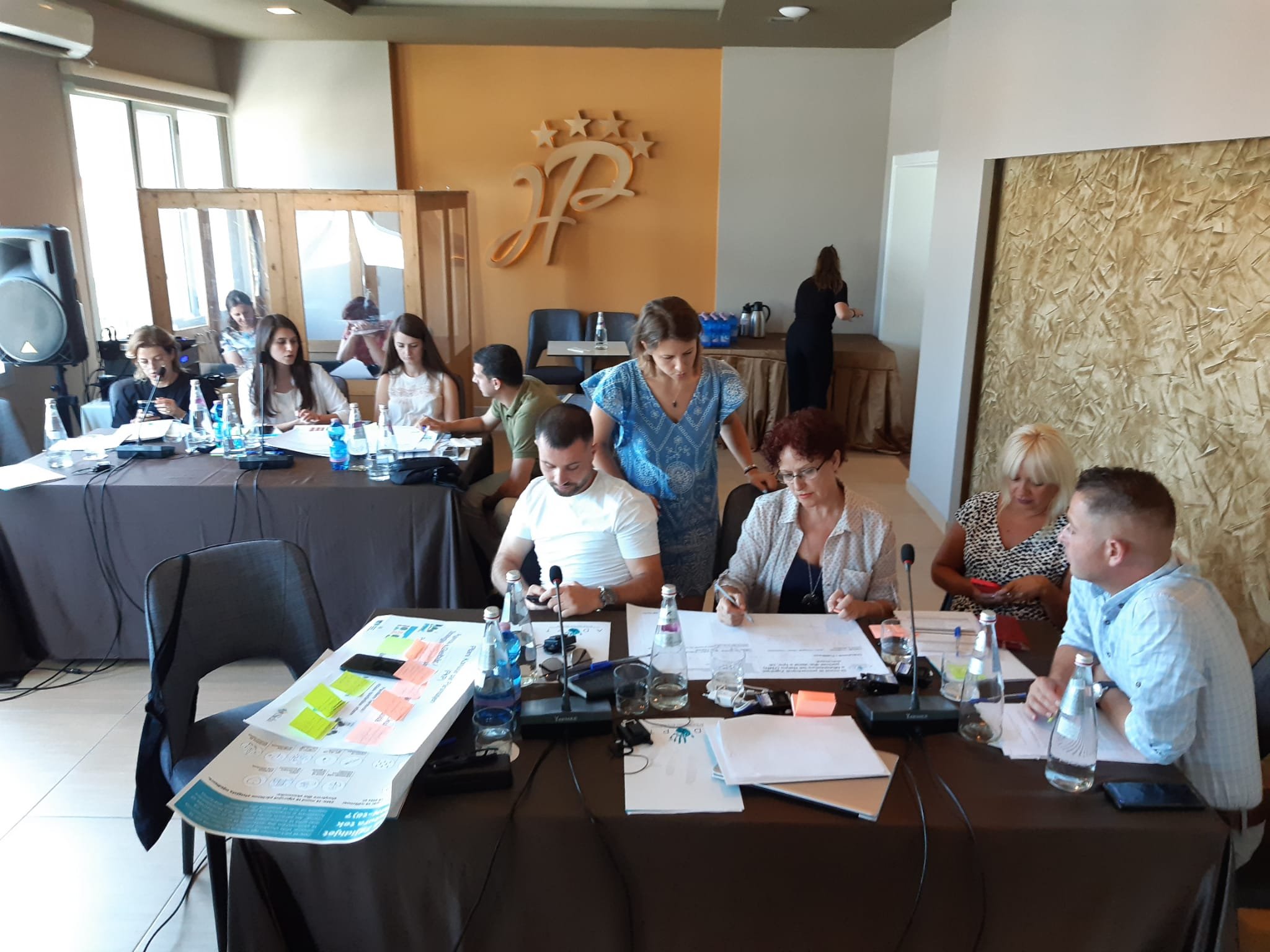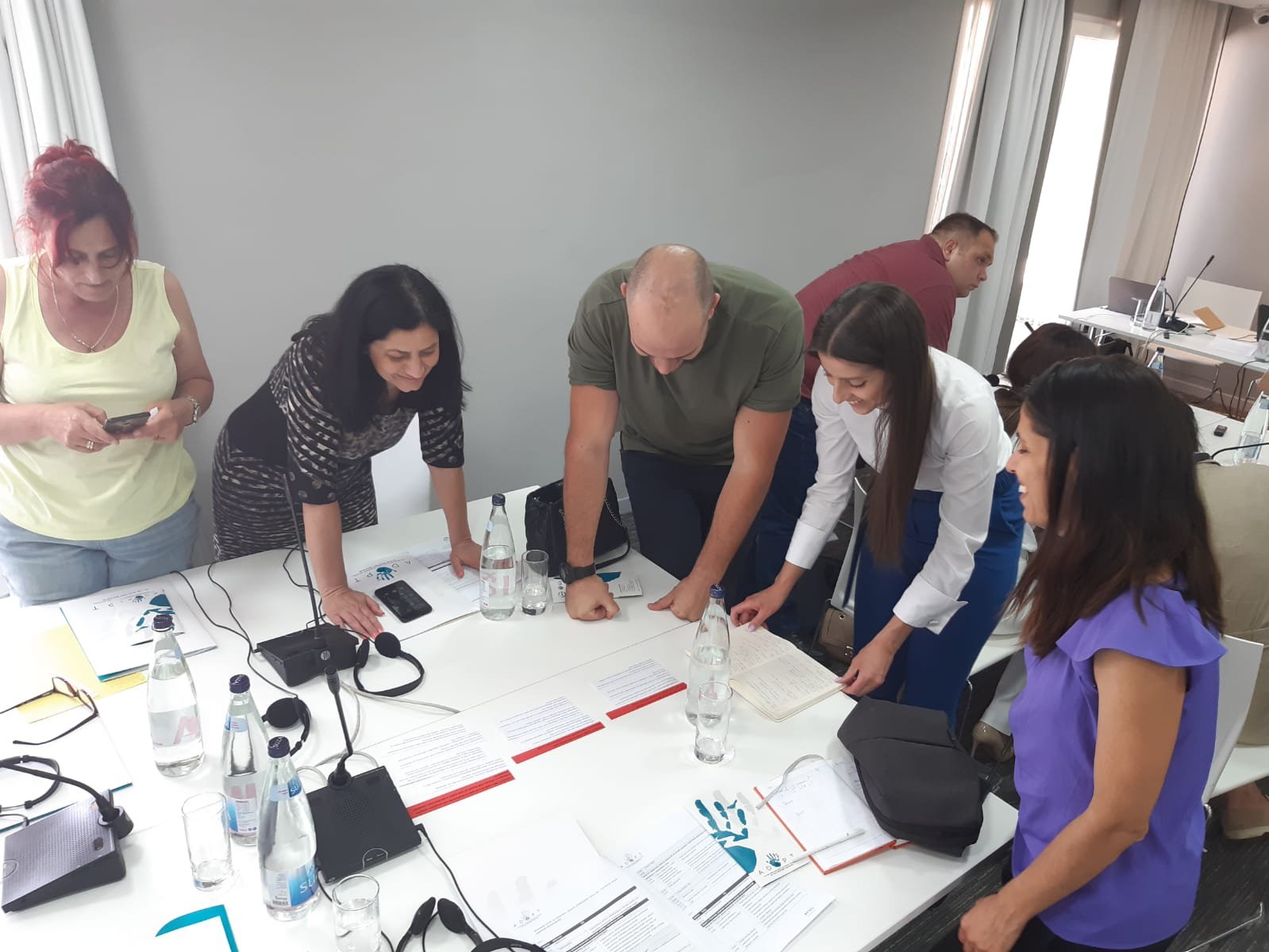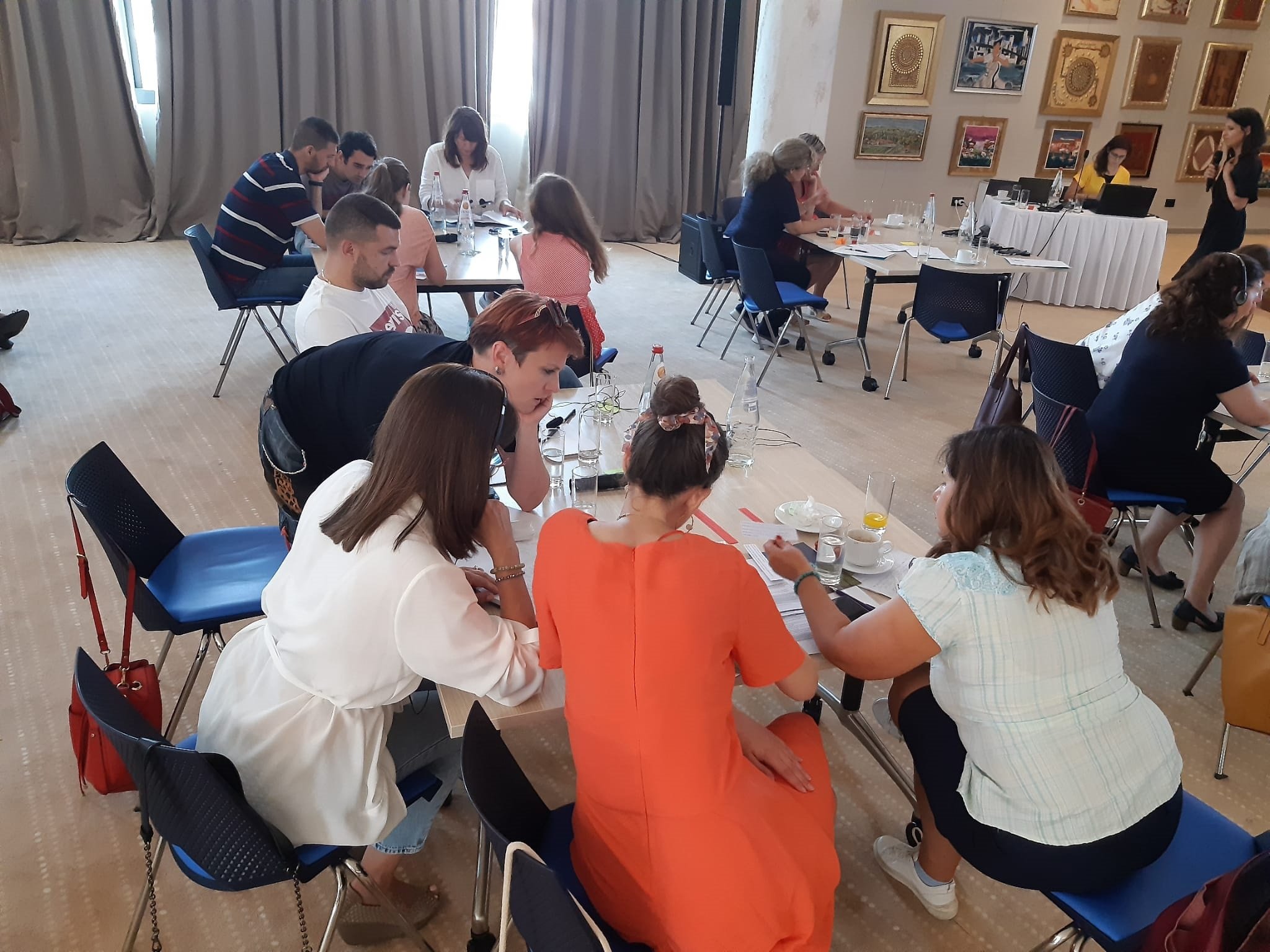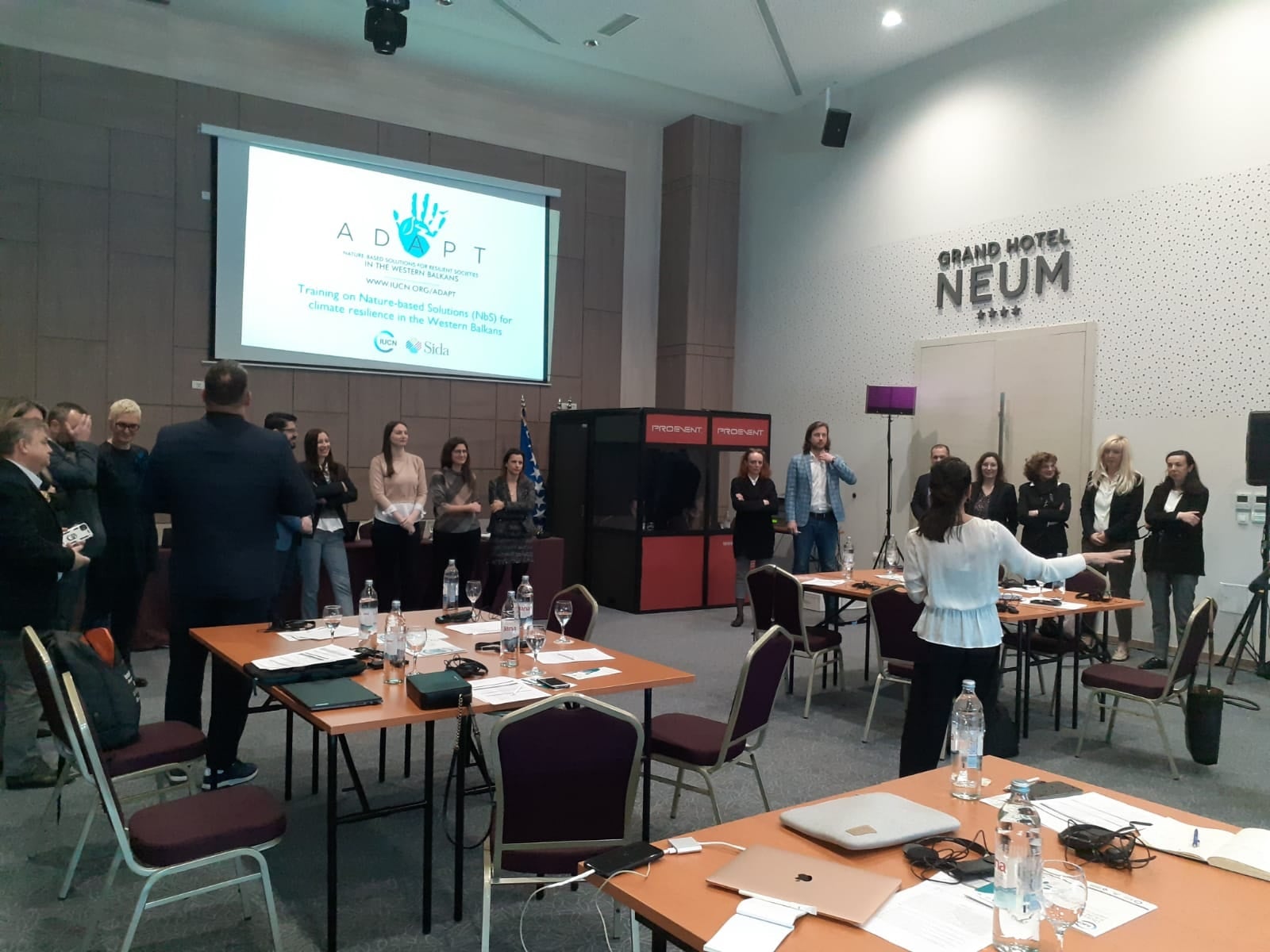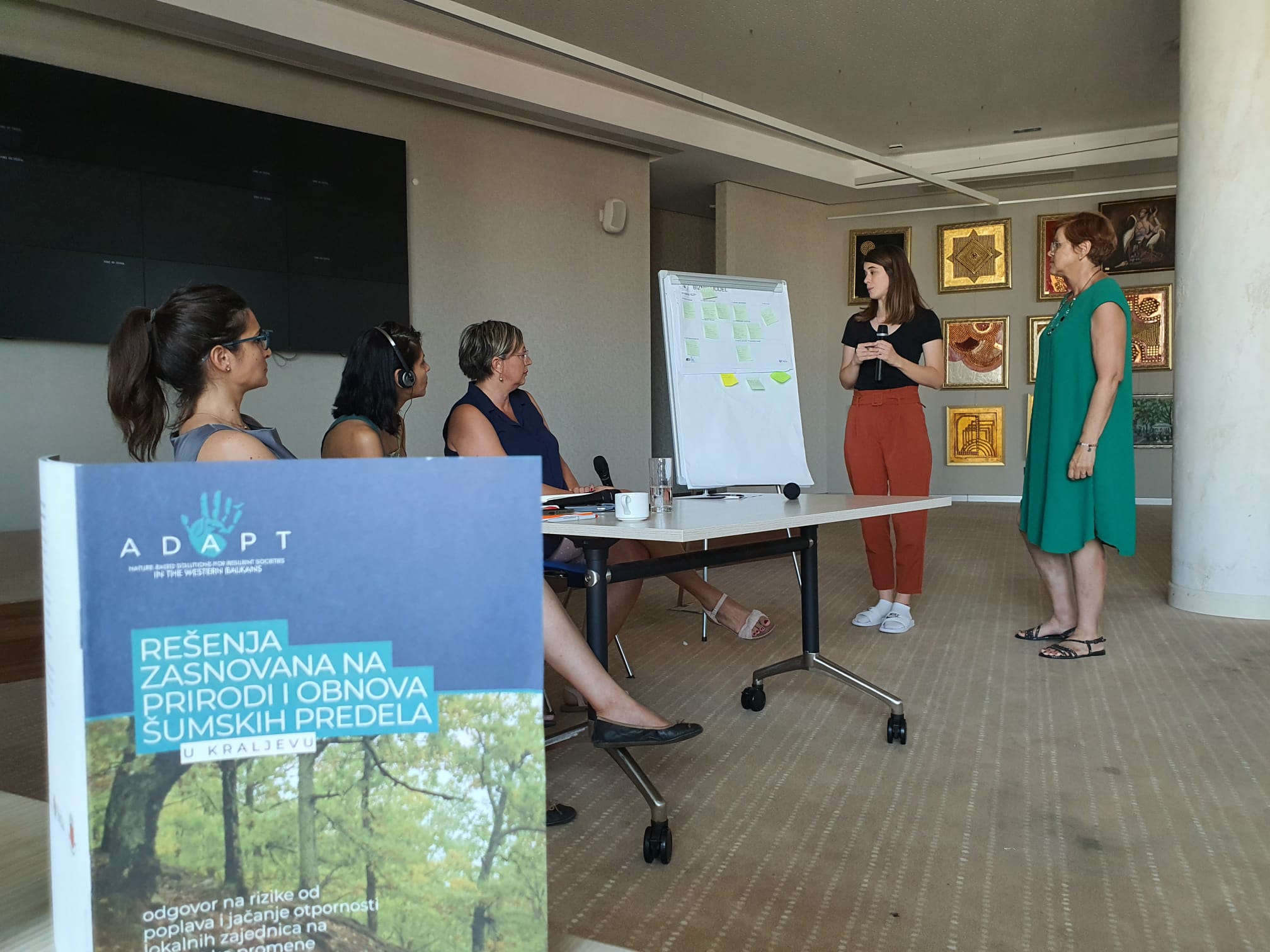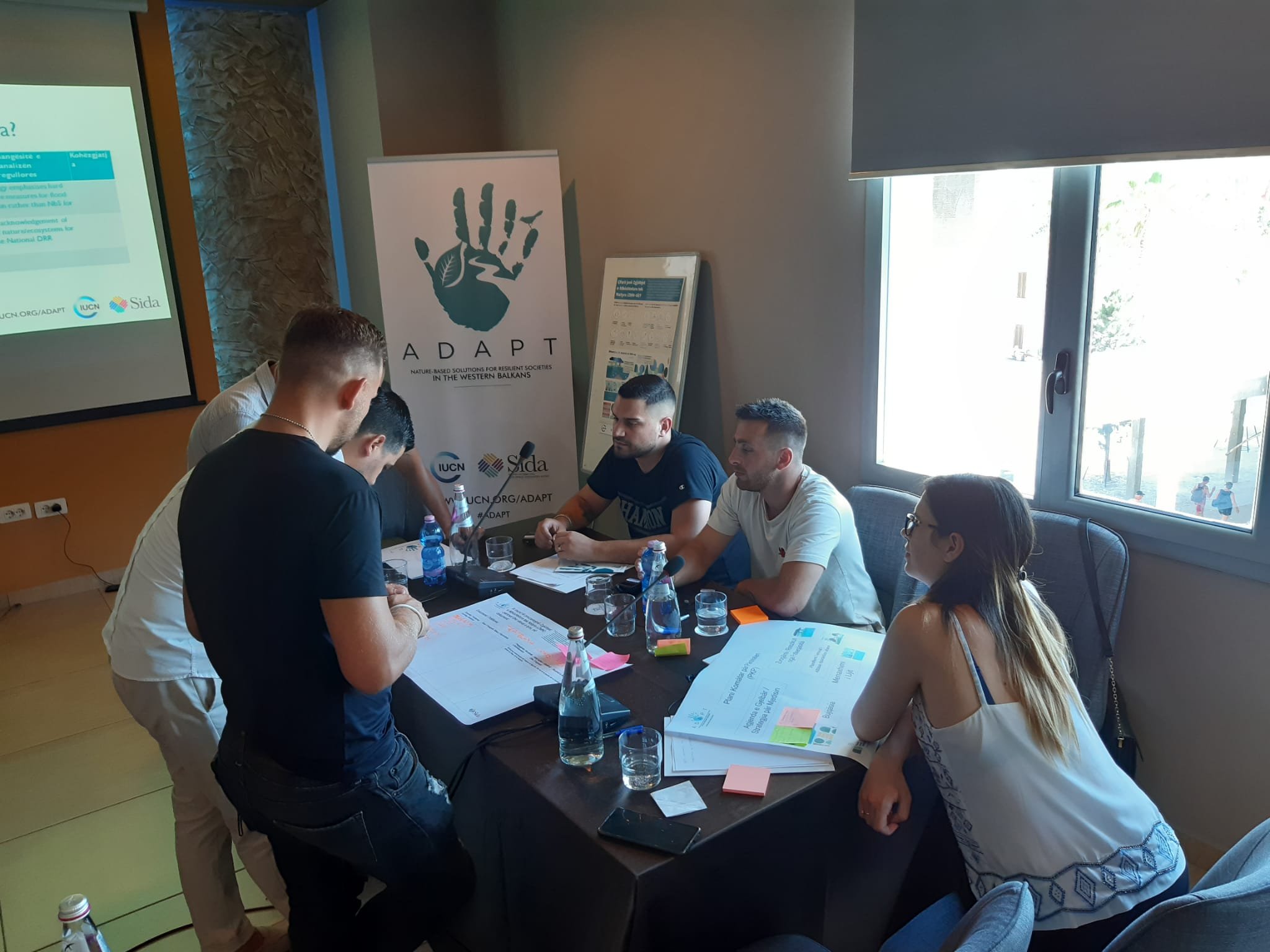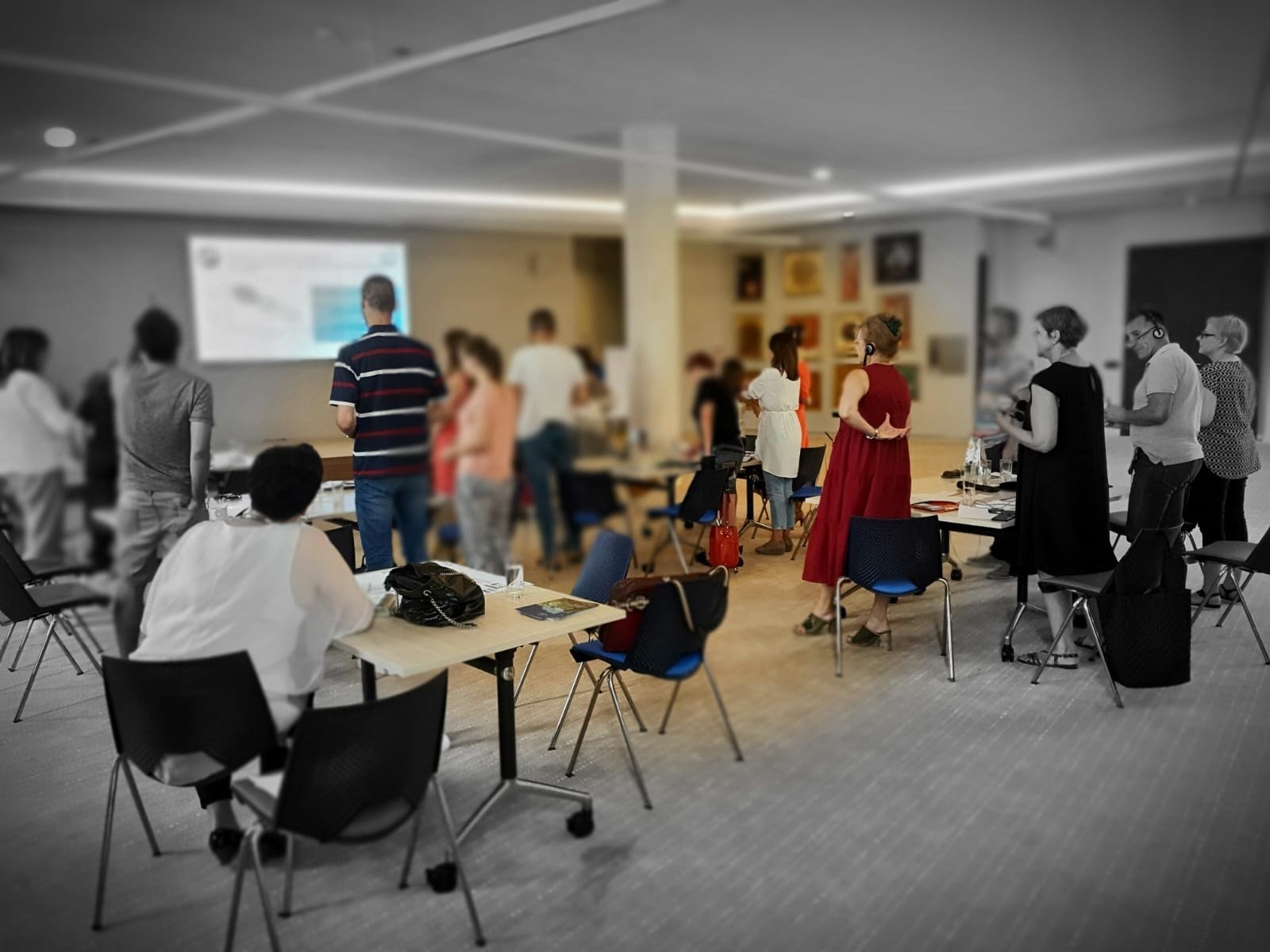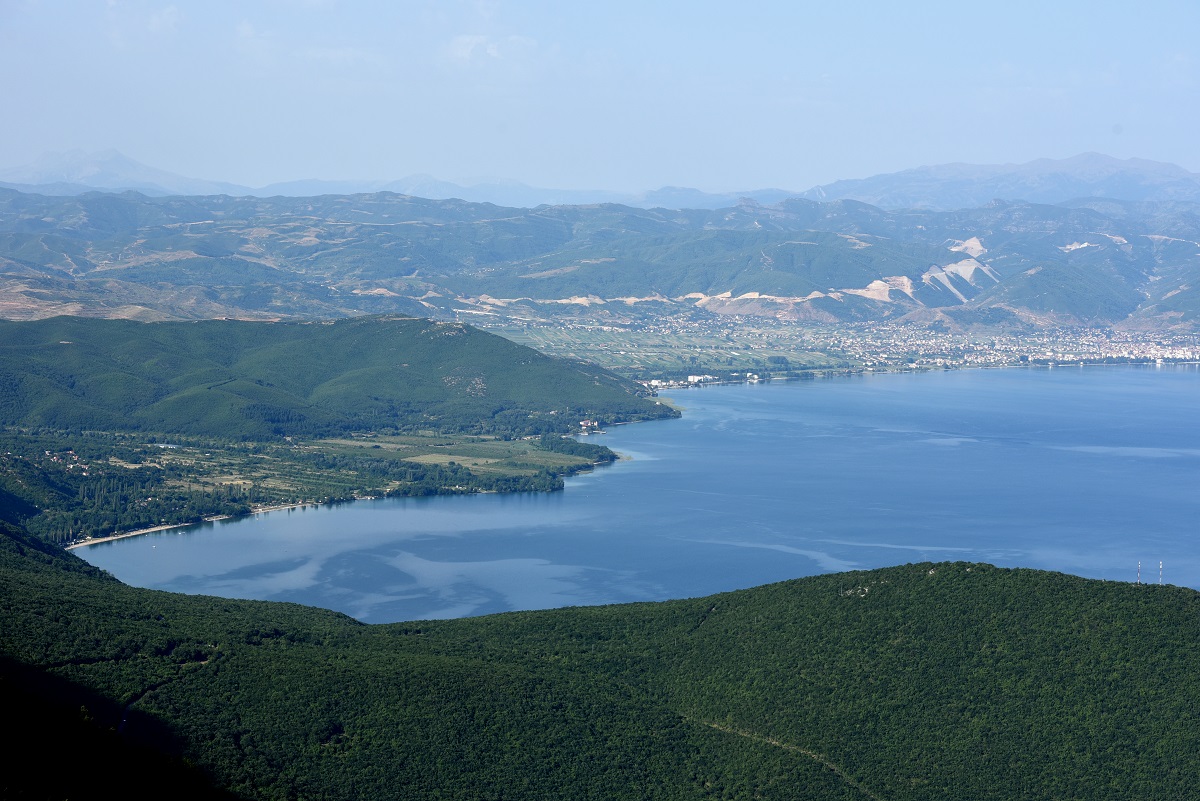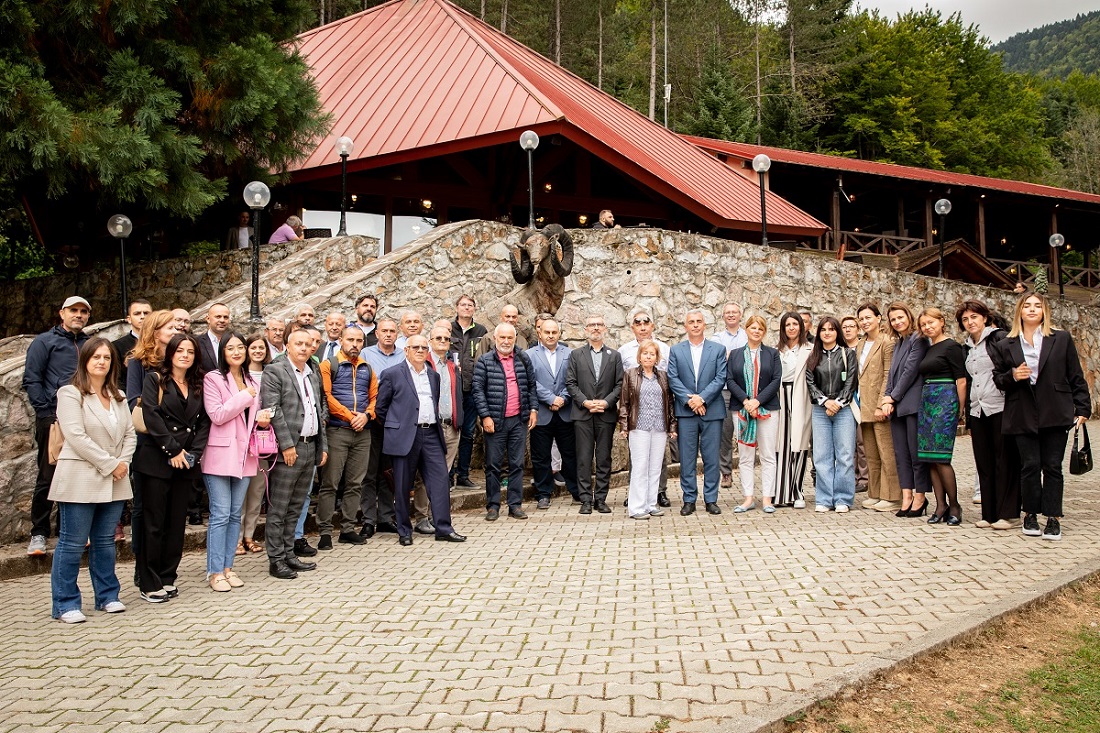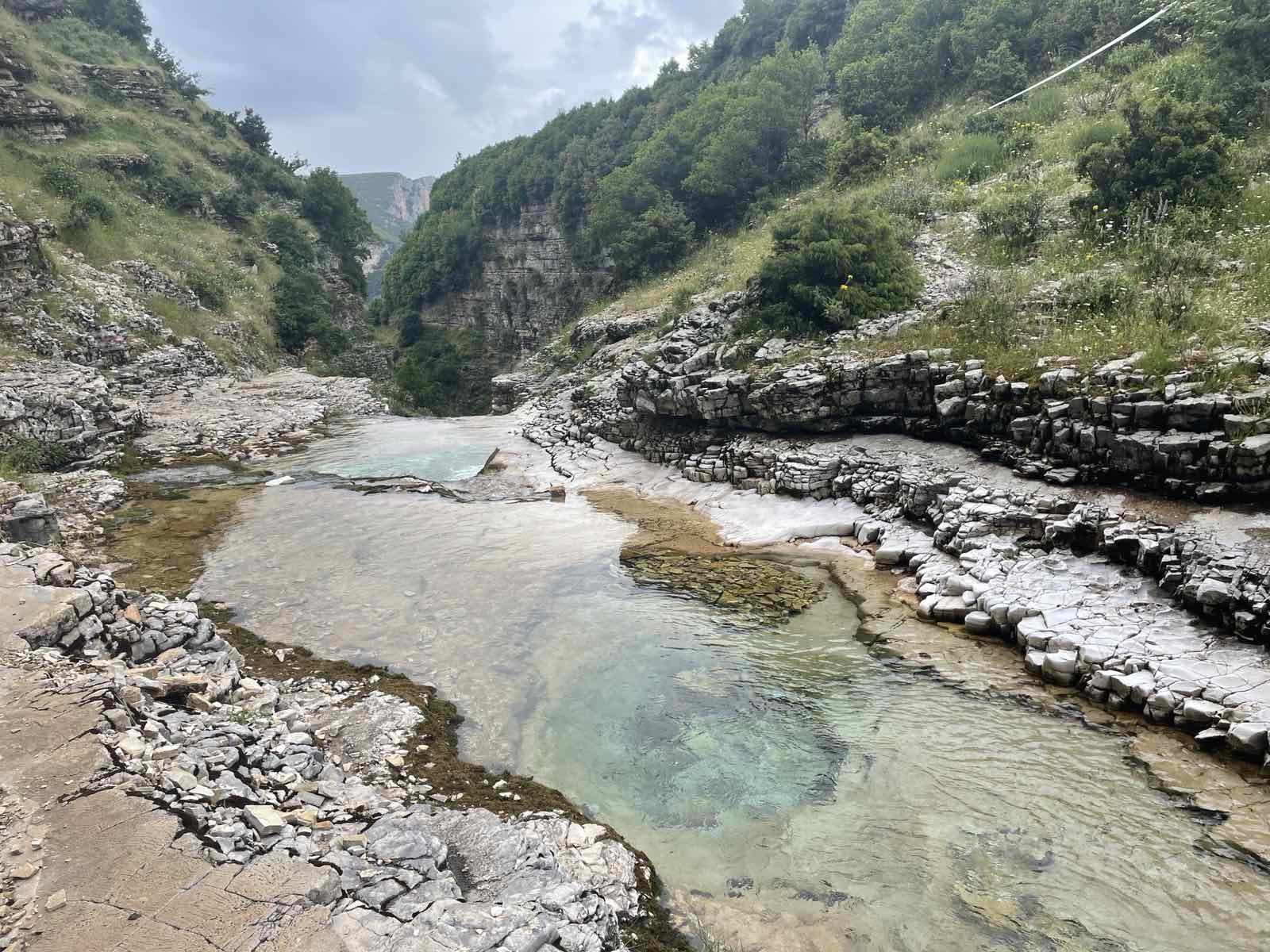Building the knowledge and capacity on Nature-based Solutions in the Western Balkans
IUCN team of experts has delivered a set of training events in Albania, Bosnia and Herzegovina, Montenegro, and Serbia from March to July 2022 aiming to facilitate experience sharing, strengthen knowledge, and sensitise decision-makers, planners, and practitioners on the role of Nature-based Solutions (NbS) for climate change adaptation and increased community resilience.
The learning workshops were conducted within the initiative ADAPT: Nature-based Solutions for resilient societies in the Western Balkans, funded by the Swedish International Development Cooperation Agency (SIDA) and implemented by IUCN ECARO.
The workshops covered the fundamentals of the NbS approach, pathways for mainstreaming NbS into decision-making and policy processes, stepwise guidance on the planning, design and implementation aspects for effective NbS interventions, monitoring, evaluation and verification, overview of financial and investment opportunities and mechanisms suitable for NbS, and guidance on designing strategies for sustainability and upscaling. Governance, economic benefits, gender, social inclusion and justice were cross-cutting topics addressed throughout the workshops.
“The training exceeded our expectations! The trainers have top-notch knowledge and skills, which helped us to become better acquainted with the topics and Nature-based Solutions. The opportunities to exchange experiences and examples of good practice, as well as active roles in the practical part of the training, were especially significant. It was so special that it motivated us to start preparing the next projects right after it. Simply put, this was a motivation booster for us!” Zdravko Maksimović, Head of the Department for Civil Protection, Municipality of Kraljevo, Serbia
In the form of tailor-made NbS training modules, the knowledge-sharing events also tackled current data and information gaps, elaborated on the benefits and added value of applying NbS in the Western Balkans, and provided access to and promoted relevant tools on NbS approaches and their application.
“Thank you so much for an inspiring workshop with so much positive energy. It's very important to mention that during the training, participants from different sectors, institutions and CSOs functioned as one family. I believe that similar training will soon be organised and that we will have the opportunity to continue our practice work on examples from Montenegro!” Sanja Orlandić, NGO Green Home, Montenegro
Around 80 representatives from 50 relevant governmental institutions and bodies, civil sector and international organisations, local communities and academia participated in these three-day training sessions in four Western Balkan economies. The national and local stakeholders shared their understanding of opportunities for and the value of NbS for different sectors, deliberated high-level support for NbS application at scale, and discussed how to strengthen an enabling environment for NbS uptake into local, sectoral, and national policies for climate change adaptation and disaster risk reduction.
“The workshop was interactive and useful. Based on good practices and experiences in using Nature-based Solutions from colleagues from different institutions, the technical, management and socioeconomic aspects, possibilities and challenges to provide the information necessary to adopt policies and to plan Nature-based Solutions intended for adaptations to climate change and reducing disaster risks. The workshop greatly contributed to presenting the tools and approaches in implementing Nature-based Solutions.” Jelena Ban, Ministry of Ecology, Spatial Planning and Urbanism.
Based on good practices and lessons learned from NbS experiences, the training provided knowledge and tools to support the deployment of NbS, drawing on technical, governance, and socio-economic aspects, opportunities, and challenges to inform NbS policy-making and planning for climate change adaptation and disaster risk reduction. Moreover, it provided methodologies and approaches for the planning, design, and implementation of NbS intervention by applying the IUCN Global Standard for Nature-based Solutions™ and to mainstream NbS into national policies, strategies, and planning processes.
As part of the knowledge and capacity efforts for the ADAPT project, the workshop series will continue in the second part of the year, specifically in North Macedonia and Kosovo.
„A special feature of the workshop was the specific experience of the representatives of institutions, who are also professionals with a range of expertise: environment, water management, forestry, biodiversity conservation. In this way, the theoretical concept of NbS received practical significance, with consideration of the specificities and environmental applications of this development concept in Bosnia and Herzegovina.” Ozren Laganin, Ministry of Spatial Planning, Civil Engineering and Ecology of Republika Srpska
For more information on the ADAPT project, follow us on Facebook.
